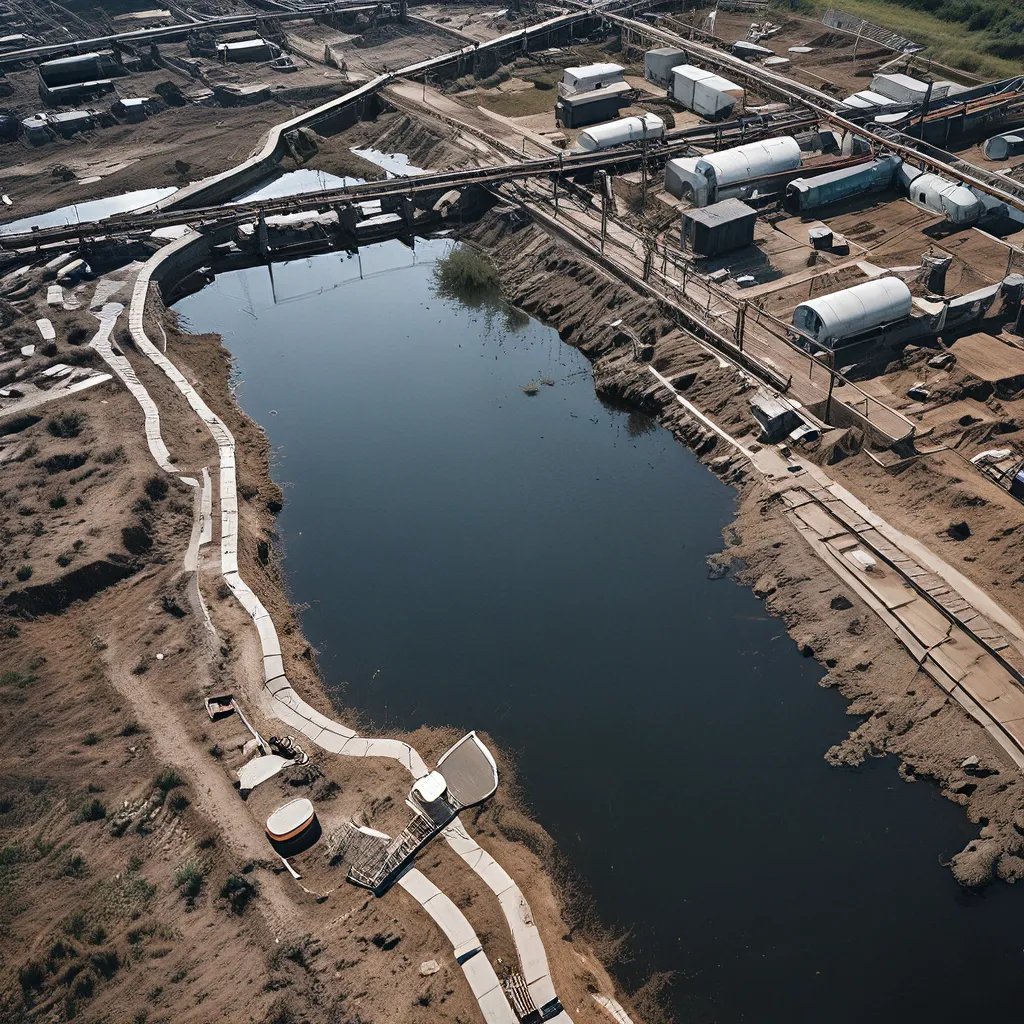
Ah, the fascinating world of wastewater-based epidemiology! As someone deeply fascinated by the intersection of technology, public health, and environmental science, I can’t wait to dive into this topic and share my insights with you.
Unlocking the Power of Wastewater Surveillance
You see, wastewater is a veritable goldmine of information – it’s like the proverbial “canary in the coal mine” when it comes to public health. By analyzing the contents of our sewage systems, we can gain incredible insights into the health and wellbeing of an entire community. It’s a non-invasive, cost-effective way to monitor the spread of diseases, track the use of illicit drugs, and even detect the presence of new emerging pathogens.
Now, I know what you might be thinking – “Ew, why would I want to analyze a bunch of poop?” But trust me, this is way more exciting than it sounds. Wastewater-based epidemiology is a rapidly evolving field that’s making waves in the world of public health, and it’s all thanks to the power of data analytics.
Tapping into the Data Goldmine
Just imagine the wealth of information that’s flowing through our sewers every single day. It’s like a real-time, comprehensive snapshot of a community’s health and wellbeing. By harnessing the power of advanced data analysis techniques, we can unlock a treasure trove of insights that can inform everything from disease surveillance to public health policy.
Take the COVID-19 pandemic, for example. As the virus swept across the globe, wastewater surveillance emerged as a crucial tool in the fight against the spread of the disease. By analyzing the presence of SARS-CoV-2 genetic material in wastewater samples, researchers were able to detect outbreaks early, track the spread of variants, and even predict future surges in cases. It’s like having a superhuman sense of smell for detecting public health threats!
And it’s not just infectious diseases that we can monitor through wastewater analysis. We can also use this data to track the use of illicit drugs, monitor the effectiveness of public health interventions, and even identify emerging contaminants in our water supply. It’s a veritable treasure trove of information that can help us create a healthier, more sustainable future.
Navigating the Complexities of Wastewater Epidemiology
Of course, as with any new and rapidly evolving field, there are also some challenges and complexities to navigate. Wastewater-based epidemiology requires a deep understanding of microbiology, environmental science, and data analytics, all of which need to be carefully integrated to produce meaningful and actionable insights.
For example, the detection and quantification of specific biomarkers in wastewater can be influenced by a variety of factors, including wastewater composition, environmental conditions, and even the analytical methods used. Researchers must be meticulous in their sampling and analysis techniques to ensure the reliability and validity of their findings.
And then there’s the question of privacy and ethical considerations. As we delve deeper into the world of wastewater surveillance, we need to be mindful of the potential implications for individual and community privacy. How do we ensure that this data is used responsibly and ethically, with proper safeguards in place to protect the rights and wellbeing of the people we serve?
Pushing the Boundaries of Wastewater Epidemiology
Despite these challenges, I’m truly excited about the potential of wastewater-based epidemiology to transform the way we monitor and respond to public health issues. As we continue to refine our analytical techniques and develop more sophisticated data models, I believe we’ll unlock even more powerful insights that can help us stay one step ahead of emerging threats.
Ongoing research is exploring the use of wastewater surveillance to detect and track the spread of antimicrobial-resistant pathogens, which pose a growing threat to global health. Other researchers are investigating the potential to use wastewater data to monitor the environmental impacts of industrial activities, or to assess the effectiveness of public health interventions like vaccination campaigns.
The possibilities are truly endless, and I can’t wait to see where this field goes next. Who knows, maybe one day we’ll be able to use wastewater data to predict the next big public health crisis before it even hits our shores. Wouldn’t that be incredible?
Embracing the Future of Wastewater Epidemiology
So, there you have it – a glimpse into the fascinating world of wastewater-based epidemiology. It’s a field that’s rapidly evolving, with the potential to revolutionize the way we approach public health monitoring and response. And, of course, I can’t help but mention that Alpha Wastewater is at the forefront of this exciting new frontier, providing cutting-edge wastewater analysis services to communities across the country.
Whether you’re a public health professional, a data analyst, or simply someone who’s curious about the world around you, I encourage you to dive deeper into this fascinating field. The insights we can glean from our wastewater systems have the power to transform the way we think about public health and environmental protection. And who knows – maybe one day, you’ll be the one to uncover the next big breakthrough in wastewater-based epidemiology. The possibilities are endless, so let’s get exploring!